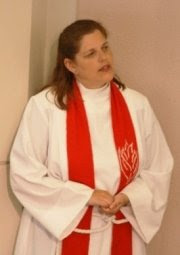This week we finish the section of Isaiah that is known as First Isaiah.
We hear the second half of the oracles against the enemies of Israel and Judah and move into a section of reflection from the post-exilic period.
In the history of the Israel there are several times when large portions of the population were taken into exile after a military defeat - but the major one is what is known as the Babylonian Captivity. This is when the Babylonians conquered Israel and carried the leaders and craftsmen and any one who was educated into exile. The exile in Babylon lasted around 60 years. This happened about 500 years before the birth of Christ. The Post-Exilic period was a period when Israel reconsidered what it meant to be a nation and to be God's chosen people. There was a lot of debate about purity and the authority of different parts of Scripture and what it meant to be God's people.
Some of those debates are seen at the end of First Isaiah - they are more fully developed in the later sections of the book.
At the end of First Isaiah we also hear of the coming of the Majestic King. These prophecies talk about the coming of a peaceful reign of a king who rules in the name of God.
When Isaiah wrote them they were referring to the hoped for restoration of the Kingdom of Israel. By the time of Jesus they had come to be read as prophecies of the Messiah - the one who would come in the name of the Lord and free the people.
This week we also have the first Chapter of Second Isaiah - Chapter 40.
This is between 200 and 300 years after the return from Exile and is calls the people to be ready for the coming of God. It has become one of the most familiar prophecies of the Messiah - largely because Handel chose it as the opening words for his Messiah.
Subscribe to:
Post Comments (Atom)

No comments:
Post a Comment